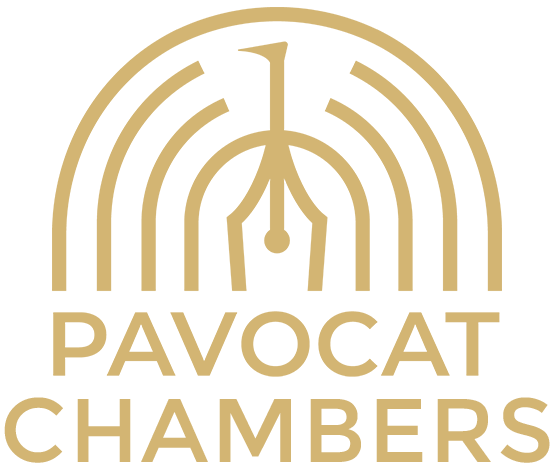DIRECT ACCESS BARRISTERS
Pavocat Chambers will always endeavour to provide you with a first-class service and, when it is appropriate to do so, we will also recommend leading solicitors and our professional partners to provide full litigation support services.
Our chambers provides a Direct Access service, offering high-quality advice and advocacy from expert leading barristers in the fields of crime and regulation. Chambers’ work has an emphasis on fraud and financial wrongdoing and our barristers regularly act for individuals and companies in high-profile criminal, regulatory and civil litigation cases.
WHAT IS DIRECT ACCESS?
Up until 2004, barristers were not able to take on clients who approached them directly. However, a change in the law means that a barrister can now be instructed directly by members of the public or corporate bodies without first having to go through a solicitor or other intermediary. This is called Direct Access, and is also referred to as Public Access.
The Public Access scheme has saved people time and money, as they only have to consult with one party (the barrister) when handling their case. The barrister’s role is essentially the same.
- Cost – Choosing to take the Direct Access route has several advantages. Some people find that instructing a barrister themselves costs less than going through a solicitor since they are paying for the services of one party, rather than two. You are also likely to do some of the administrative work yourself and manage your own case, which can reduce your legal costs. However, whilst the Public Access scheme can save you money overall, it is also important to note that if using it, you cannot apply for Legal Aid.
- Less time-consuming – Obtaining the necessary legal advice or representation is often quicker and easier than it would be when first going through a solicitor.
- Transparency – Using Direct Access also provides a degree of transparency, as barristers must disclose fee information. Fees are also agreed upon in advance, with a break-down of each service and what you can expect to pay.
- Communication – By instructing a barrister yourself, you will have a direct line of communication with the person who is dealing with your case, allowing you to build up a good rapport.
- Choice – When using Direct Access you have complete control over your choice of barrister, as long as they are able to carry out Direct Access work and your case is suitable for the scheme. This means that you can select the right barrister for you, based on practice area, level of expertise and fees.
Not all cases are suitable for Direct Access, so it is important to determine whether yours is. If your case is relatively straightforward, you might be suitable for the public access scheme. Moreover, the scheme works best when clients are well-organised and have the ability to themselves carry out the administration preparation needed for their case.
Contacting the barrister or their clerk to discuss your case is advised. After reviewing your case, you may be told that it is better to work with a solicitor and a barrister. This is typical in complex cases, where additional help is required. Likewise, cases involving children are usually not appropriate for direct access.
If a barrister knows that your case is not suitable for public access, they are obliged to turn it down, as it is against the rules for them to act on your behalf in those circumstances. As such, a Direct Access barrister at Pavocat Chambers will only work with you if your case is suitable, as per the Bar Code of Conduct.
Similarly, if your case becomes unsuitable for public access after work has begun, the barrister must inform you of this and is obliged to stop acting for you.
If your case is not suitable for public access, the barrister may be able to recommend a solicitor for you to instruct.
The first step is to find a barrister who can take on public access clients. They must be authorised by the Bar Standards Board in order to do this. As additional training is required to become a public access barrister, not all barristers are allowed to take on such clients.
You can start by searching on the Bar Council Direct Access Portal, which is the simplest way to find and contact a direct access barrister in your location and who practices your required area of law.
The Barristers’ Register also has a list of every barrister in England and Wales that is currently allowed to practice. It also lists other important pieces of information, such as if they can take on Public Access work, the year they were called to the Bar, their practice areas, details of their barristers’ chambers and whether they have been subject to any disciplinary proceedings.
There are also several legal directories online, such as the Legal 500 and Chambers & Partners Guide to the Legal Profession, which lists barristers.
You can also search online for barristers’ chambers which specialise in your required practice area and either view the profiles of barristers that take on Public Access work or contact the Senior Clerk directly, who can help you find an appropriate barrister for your particular case.
If you wish to instruct a barrister directly, you should first understand your problem and what it is that you need the barrister to do for you. Next, you can phone the Senior Clerk of the barristers’ Chambers and speak to them about the nature of the work that you need a barrister to help you with, including that you wish to instruct the barrister yourself. The clerk will then guide you on the next steps.
If it is decided that your case is suitable for direct access work, then you and the barrister must agree on the terms for carrying out the work. This will be laid out and sent to you in a client care letter. The client care letter lays out the terms of the agreement between the barrister and you, including descriptions of the work being carried out and the fees for that work.
Under Direct Access, Pavocat Chambers’ barristers can provide you with the following services:
- Advice and advocacy in court and tribunal hearings (they can represent you in court)
- Pre-charge advice
- Advice on civil claims and investigations
- Advice on regulatory compliance
- Expert interpretation of the law
- Drafting correspondence and legal documents
- Advice on collation of evidence
- Advice on prospects of fighting your case
- Negotiate on your behalf
- Advice and advocacy on appeals
- Advising on litigation strategy
- Advice and advocacy in disciplinary proceedings
- Second opinions
There are no set fees for direct access work – each barrister will have their own fees, usually varying based on experience levels, the complexity of the case and how long it should take the barrister to complete the work.
At Pavocat Chambers, we operate on a privately funded basis at very competitive rates and a fee structure can be tailored to your individual requirements.














